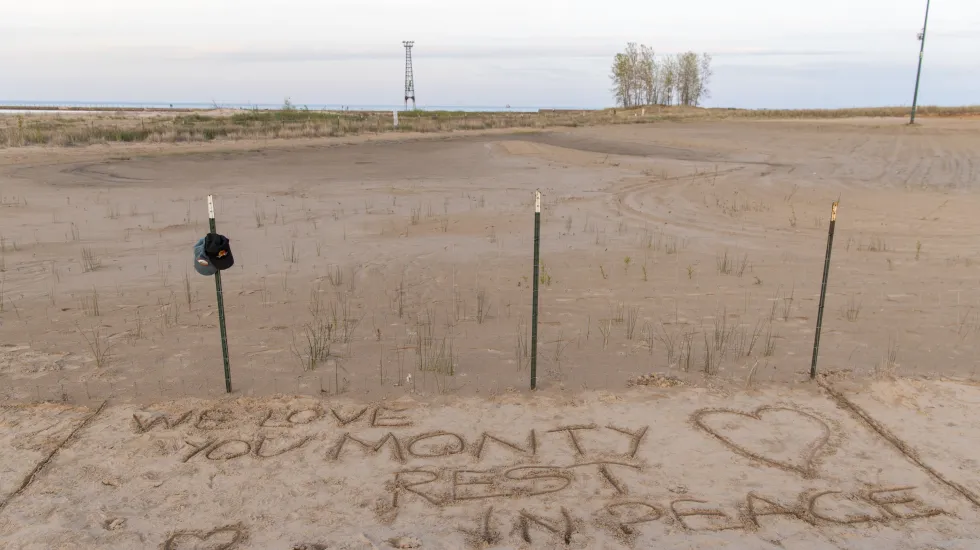
Monty, the piping plover who gained local fame as he and mate Rose nested at Montrose Beach over the past three years, has died.
Edward Warden, president of the Chicago Ornithological Society, confirmed the death early Friday evening.
A local birder and volunteer had noticed Monty behaving oddly and stumbling, and he died soon thereafter, sometime Friday afternoon, Warden said.
“By the time [the birder] had a chance to report that he was showing distressing behavior and people could get out there to see,” Warden said, “he was already gone.”
It was a bit of shock, said Armand Cann, a biologist with the U.S. Fish and Wildlife Service. “You typically don’t have healthy birds die so suddenly,” he said.
Monty arrived at Montrose Beach on April 21 — but his mate, Rose, still was nowhere to be seen as of this week.
The beloved pair had nested on that beach every year since 2019, watched closely by Chicago-area birders.
Monty’s body has been taken to the Lincoln Park Zoo to determine the cause of death, Warden said.
But “honestly there’s not a whole lot to say at this point,” Warden said — and he doesn’t know what is going to happen when, or if, Rose still shows up.
“There is no Monty at Montrose Beach,” he said. If Rose arrives, “it’s going to be a challenge to the family,” Warden said, “with half of the family gone.”
Rose normally winters in Anclote Key, Florida, while Monty spends the cold-weather months in Texas.
However, the past few weeks, wind and weather patterns have not been favorable for Rose to travel from Florida to Chicago, Warden said earlier this week. But those patterns have started to change, and Chicago has seen a lot more birds coming through the area recently.
It’s not unusual for the timing of birds’ arrival to vary, according to Cann. If Rose isn’t spotted by the end of the breeding season, around August, he may wonder if she made it through the winter.
Last summer, after reuniting in Chicago, Rose laid eggs, and four chicks were hatched — though only two, Imani and Siewka, survived. The other two went missing and were presumed to be dead.
Monty’s death is a big loss, Cann said. According to last year’s numbers, there are only around 150 adult piping plovers, he said. Losing even one is a big deal.
“It’s going to hit everyone hard, I think,” Cann said.

Just after Monty died, Christopher Maceyak arrived at the beach, where a makeshift memorial soon formed. Maceyak has been among a team of volunteers helping to monitor Monty and Rose.
It is an “enormously sad” day, Maceyak said. “Everyone is devastated. Lots of tears. Everyone got really attached to these birds.”
Those keeping tabs on Monty and Rose had become a tight-knit group, he added, and he isn’t surprised the plovers’ story touched so many.
“Over the past couple of years, it’s been something people could rally around and concentrate on through everything that’s been going on,” Maceyak said. “It was such a success story that they’ve been coming back and forth. It was something to really look forward to.”
Contributing: Tyler Pasciak LaRiviere








